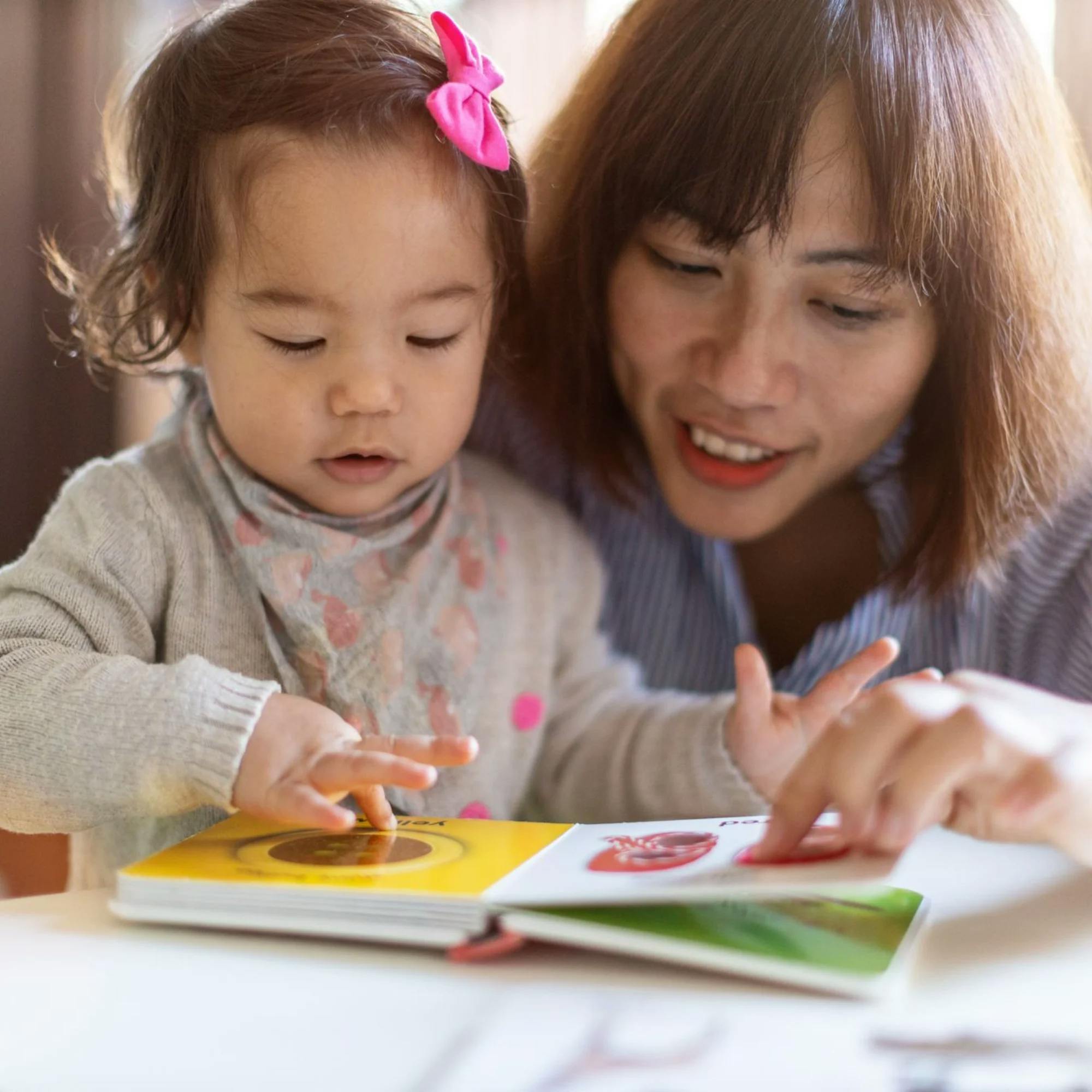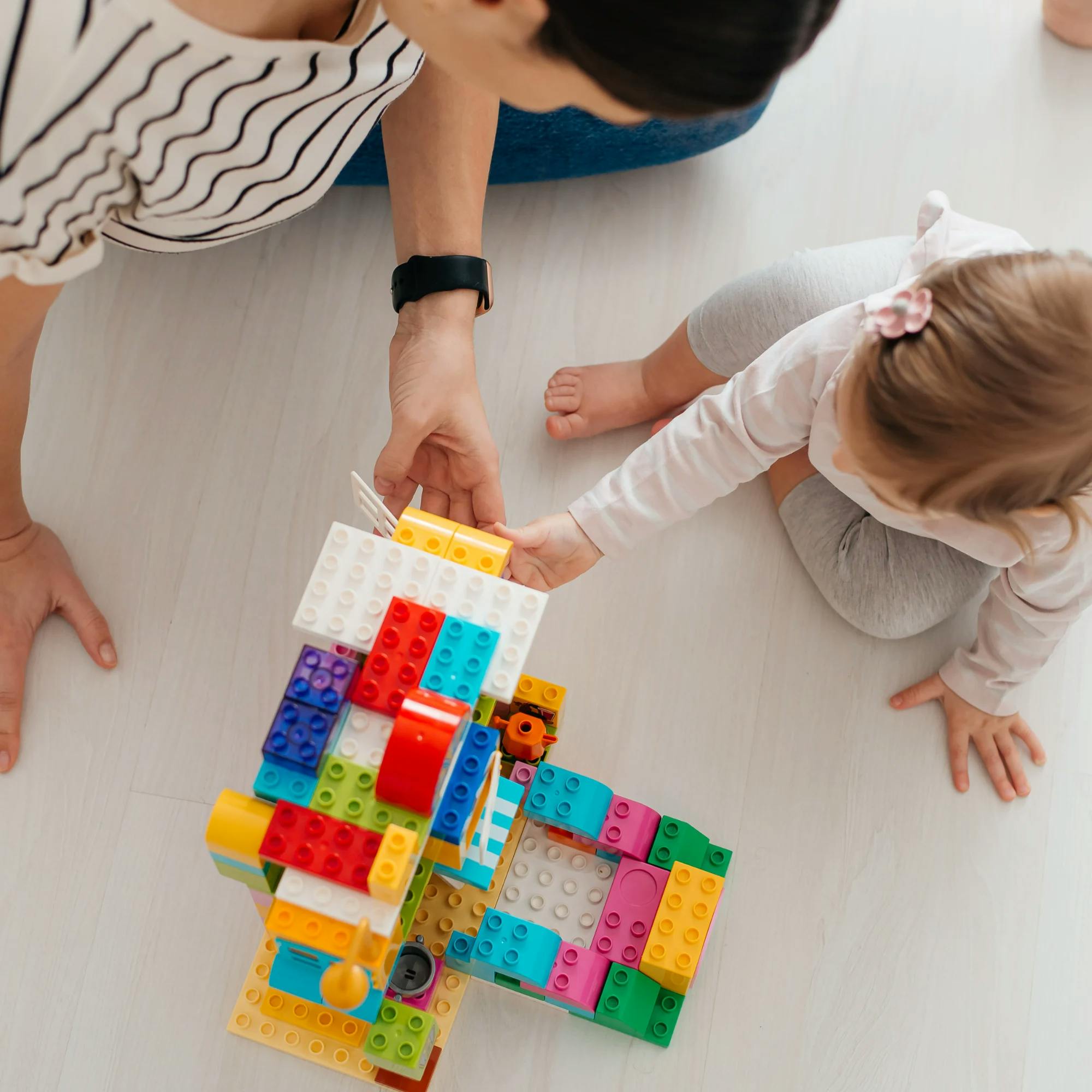
5 Ways You Could Be Delaying Your Child's Language Development
 Abby Barnes, M.S., CCC-SLP
Abby Barnes, M.S., CCC-SLP
Children learn how to communicate from the people they spend the most time with–their family. But did you know that certain aspects of your daily routine and interactions could be hindering your little one’s development? Let’s take a look at five things you may not realize you’re doing that could hurt your child’s speech and language growth–and five ways to turn them around for better communication.


1. Talking for your child
When kids aren’t talking much yet, it’s easy for others to talk for them. Sometimes we may not give our child the opportunity to answer questions, like what they want to eat or what outfit they’d like to wear–we just don’t ask them. Or maybe the child is asked a question, but those around them, like caregivers and siblings, assume they need to speak for the child. No matter the situation, not giving your child the chance to talk can hurt their language development. Essentially, your child is learning that they can get what they need by having someone else speak for them.
It takes a lot of practice for children to learn how to use words for functional purposes, like making a request. So every opportunity we give them to do this helps them grow these skills! Early on, they may not always answer or respond, but the important thing is that they’re at least given the chance. Over time, they will learn what to say and begin to respond appropriately.


2. Skipping out on books
Our daily schedules are often packed. It can be easy to forget to take a few minutes to read with your child. But those minutes matter. One study revealed that when parents read just one book a day to their kiddo, by the time that child entered kindergarten, they’d heard a total of 1.4 million more words than children who weren’t read to. Reading with your child helps them improve their vocabulary, learn how to create sentences, and learn how to follow the order of stories. It’s important to read with your child regularly–every day, if possible.
To help set up a reading routine, pick a time of day when your child is likely to sit down with you. The early evening is a great choice. Your child may be more likely to snuggle up after a long day and when they know bedtime is just around the corner. Right before naptime is another option that works well for some kiddos.
Try letting your child pick out the book, or choose books with topics and pictures they’re interested in. The more engaging the book is for your child, the more they will absorb.
3. Not talking to your child frequently
One of the most important–and simplest–things you can do with your child is to talk to them frequently, even if they can’t yet respond with words. Children soak up speech and language by hearing it. And they have to hear it somewhere first, right? If the house is quiet all day long, who are they learning language from? You are the perfect person to help them learn the basics!
You can do this in a few ways. One is to simply narrate what you’re doing together. You may tell your child something like, “I’m getting your lunch ready. I cut up your sandwich. I’m pouring your juice. Yum! It’s time to eat!”
You can also pause in the conversation in case your child will respond. You can say things like, “Are you ready to go to the park?” or “Let’s go get in the car!” Pause and wait. See if your child responds in any way. It can be a word or even an excited squeal! As you start to use these techniques, watch for your child to begin communicating more often, and in more advanced ways, than they currently are.
Try to make it a habit to narrate at least 50% of the tasks you do with your child a day.
Try to make it a habit to narrate at least 50% of the tasks you do with your child a day. It may feel a bit silly, especially if it seems like you’re just talking to yourself. But this is one of the simplest, most effective ways to help kids learn language. And one exciting day, your child will likely respond to you out of the blue!
4. Speaking at the wrong age level for your child
Along these same lines, let’s discuss how to talk to your child at the right age level. When speaking with even very young children, we should use grammatically correct sentences and appropriate speech sounds. For example, say, “Put your shoes on your feet!” instead of “Put your shoozies on your wittle toezies!”
However, make sure your sentences aren’t too long or complex, and your vocabulary is easy to understand. Talk about topics that are appropriate and interesting for your child, such as learning new colors, the names of animals, or the names of cars or other vehicles.
Some caregivers naturally tend to talk to their kids in a very young-sounding way–what some people refer to as “baby talk.” And others think they need to introduce big vocab words and more mature topics earlier on.
The truth is that the best balance is somewhere in between. Your sentences should be grammatically correct, and it’s totally fine to teach bigger vocabulary words. But we need to ensure that most of what we say to our kids is broken down in a way that they can learn and understand. This often means:
Using two- to five-word phrases and sentences
Repeating words often throughout a conversation so your child can learn their meaning
Pausing so you can give your child time to absorb and respond
Using correct speech sounds


5. Letting your child use screens too often
It’s incredibly tempting to hand our kids a phone or tablet to keep them entertained (and maybe get a little peace and quiet!). It’s impossible to totally avoid screens, but caregivers need to be mindful of how much screen time their child is getting.
Think about it like this. If a child is sitting in front of a screen, they’re not expected to talk or engage. So much more speech and language growth occurs when interacting face-to-face with another person, or when doing hands-on activities like playing or making a craft.
Research supports this. For example, one study showed the particularly serious effects of passive screen time on language. Researchers found that before a child's first birthday, those who watched more than two hours of TV a day were six times more likely to develop a language delay.


Relatedly, you may not realize that your own phone use can also affect your child’s speech and language development. The more distracted we are from our kids, the less attentive and engaged we can be with them.
In one study conducted at Boston University School of Medicine, researchers evaluated mothers’ verbal interactions with their children during mealtime when phones were used versus not used. When a mother was using a phone, she had 20% less communication with her child and 39% fewer nonverbal interactions, such as eye contact.


Don't worry about perfection
Family life can be busy and complicated. Caring for young children isn’t always easy, and it’s not always possible to have a language-rich, screen-free day. Luckily, the goal isn’t perfection! It’s simply to become more aware of all the everyday opportunities you have to help grow your child’s language skills. The information in this article, plus the wealth of helpful tips in our "Small Talk" early language course, can help you do just that. Try building some of these techniques into your routine, and you’ll soon see how your child benefits.








